On the morning of their wedding, Omar and Betty shared a breakfast of egg McMuffins at a small McDonald’s table, dressed in their finest clothes. Before driving to a Houston courthouse to be married, they walked into the attached child’s play area and joked about one day bringing their kids there.
Few understand celebrating at a McDonald’s, but for Omar and Betty it made sense. They don’t have a lot of money, and McDonald’s is part of their life. It is that way in many poor and middle-income neighborhoods, where McDonald’s have become de-facto community centers and reflections of the surrounding neighborhood.
When many lower-income Americans are feeling isolated by the deadening uniformity of things, by the emptiness of many jobs, by the media, they still yearn for physical social networks. They are not doing this by going to government-run community service centers. They are not always doing this by utilizing the endless array of well-intentioned not-for-profit outreach programs. They are doing this on their own, organically across the country, in McDonald’s.
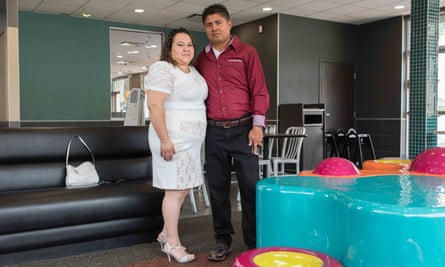
Walk into any McDonald’s in the morning and you will find a group of mostly retired people clustering in a corner, drinking coffee, eating and talking. They are drawn to the McDonald’s because it has inexpensive good coffee, clean bathrooms, space to sprawl. Unlike community centers, it is also free of bureaucracy.
Almost all of them name their group with variations of a self-deprecating theme: in suburban El Paso it is the Old Folks’ Home, and in rural New Mexico it is the Morning Brigade. In the small rural town of Natchitoches, Louisiana, it is the Romeo club, an acronym for Retired Old Men Eating Out.
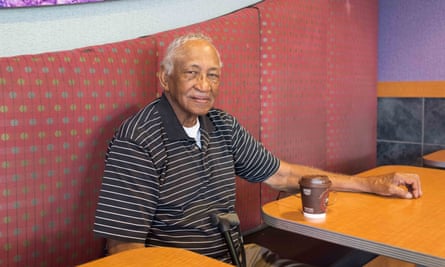
The Natchitoches group, like many of them, sprawls across a corner of the McDonald’s, taking over more and more tables as people join, and emptying them as they leave. Everyone who comes knows each other; have for many years, some since childhood.
Willard Jones, 93, tries to make it a few days a week. “I love McDonald’s. People are so nice. My friends come here. I see everybody. Coffee is good, and cheap.” He was born and raised here. “I had it real rough growing up, because times were real rough. Lived on a plantation, modern day slavery. When I was a kid, we used to get a special treat a few times a year, and go eat in town. That place was dirty and cost us a lot. Not like McDonald’s. It is clean here.”
These morning groups reflect America in another way: they are almost all segregated. There are all black groups, all white groups, and all Hispanic groups. Rarely are any mixed. The Natchitoches group is the exception. Mostly African Americans, there are a few white men who come and go.
In Natchitoches, the Romeo group isn’t the only social event at the McDonald’s. On Tuesdays, there is a bingo game. On weekends, a Bible group sets up in the opposite corner, and offers prayers and Bibles to whoever wants to come. It is run by Stephen Elliott, 63.“We come here every Saturday, and set up in this corner. The McDonald’s offers us room for whoever shows up. We have the space to gather and pray.”
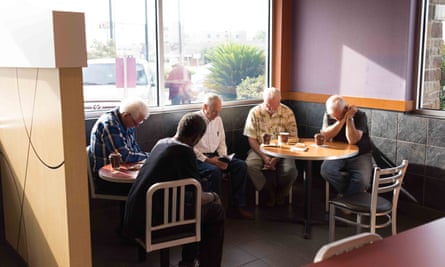
In other McDonald’s, politics are central. In one near downtown Kansas City in an African American neighborhood, each Friday morning the sitting area is turned over to a community meeting. When I was there, the topic was the politics surrounding the Black Lives Matter movement. The discussion was often loud, with speakers not hiding their frustration. Against the backdrop of raised voices, the registers and drive-through continued with the normal morning rush of coffee and egg sandwiches.
It isn’t just groups who use McDonald’s. For many of the poorest, for the homeless, and for people caught in an addiction, McDonald’s are an integral part of their lives. They have cheap and filling food, they have free Wi-Fi, outlets to charge phones, and clean bathrooms. McDonald’s is also generally gracious about letting people sit quietly for long periods – longer than other fast-food places.
In Natchitoches, Betty Ryder arrives at the McDonald’s every day around 9am, with her book and packs of cigarettes, and smelling of perfume. She buys a cup of coffee, puts in exactly six sugars, and sits at her favorite table.
“I have had a very rough life. Been through a lot. My present situation leaves me without a home between 8am and 7pm, and McDonald’s is kind enough to allow me to sit here.” She is matter-of-fact about what that rough life includes, mentioning a child who died of Aids, and her own tendency to get caught shoplifting.
One morning, Pamela Elaine, 58, and Jonathan, 31, are sitting in the booth behind Betty’s. Jonathan had spent the previous night in a detention center for a “minor altercation”. Released early in the morning, he was walking into town when Pamela offered him a ride and a meal at the McDonald’s.
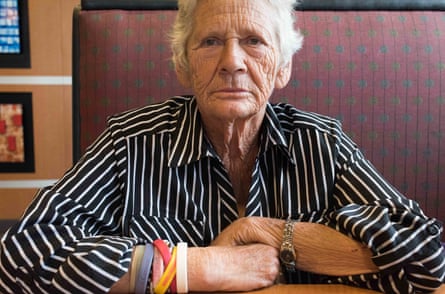
Jonathan sits quietly as Pamela tells him the services her ministry offers, and her own story of redemption from addiction through the Bible. “I never have felt comfortable in my own skin. Never felt wanted, so I did cocaine and weed and other things. That is all behind me now, and I am rich in the Lord.” When she asks Jonathan what his problems are, he smiles, then laughs. “What troubles do I have? Simple: women!”
Betty, walking by from a smoke break outdoors, listens, and laughs. “Well, we are kind of the same. My problem is men, although those men will probably all tell you it is women.”
In almost every franchise, there are tables with people like Betty escaping from the streets for a short bit. They prefer McDonald’s to shelters and to non-profits, because McDonald’s are safer, provide more freedom, and most importantly, the chance to be social, restoring a small amount of normalcy.
In the Bronx, many of my friends who live on the streets are regulars. Steve, who has been homeless for 20 years, uses the internet to check up on sports, find discarded papers to do the crossword puzzle, and generally escape for a while. He and his wife Takeesha will turn a McDonald’s meal into an evening out. Beauty, who has been homeless for five years, uses the internet to check up on her family back in Oklahoma when she can find a computer to borrow.
Most importantly though, McDonald’s provide many with the chance to make real and valuable connections. When faced with the greatest challenges, with a personal loss, wealthier Americans turn to expensive therapists, others without the resources or the availability, turn to each other.
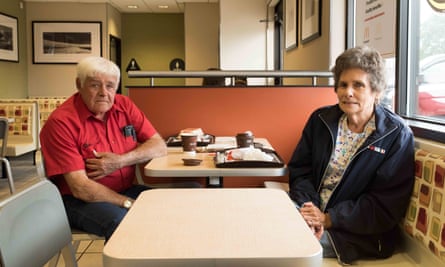
In Sulfur Springs, Texas, in the late morning, Lew Mannon, 76, and Gerald Pinkham, 78, were sitting alone at a table, the last of the morning regulars to leave. She was needling him about politics. (“I like to tease the men who come, get them all riled up, tell them they just don’t want a female as president.”) Both are retired, Gerald from working for an airfreight company, and Lew after 28 years as a bank teller.
When I asked Lew about her life, she started to tear up, stopped for a second, and composed herself. “Life is hard. Very hard. Seven years ago I lost my husband to leukemia. Then three years ago I lost one of my sons. Health complications from diabetes. When my son died, I had nobody to help me, emotionally, except this community here. Gerald lost his wife three years ago, and we have helped support each other through that.”
She stopped again, unable to speak from tears. After a moment of silence: “I look composed on the outside. Many of us do. But I struggle a lot on the inside. This community here gives me the support to get by.”
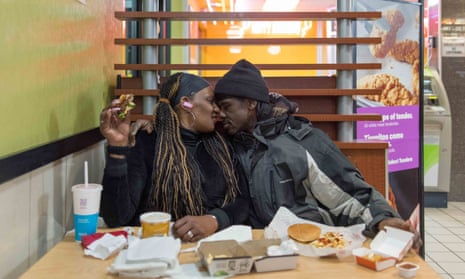
Comments (…)
Sign in or create your Guardian account to join the discussion